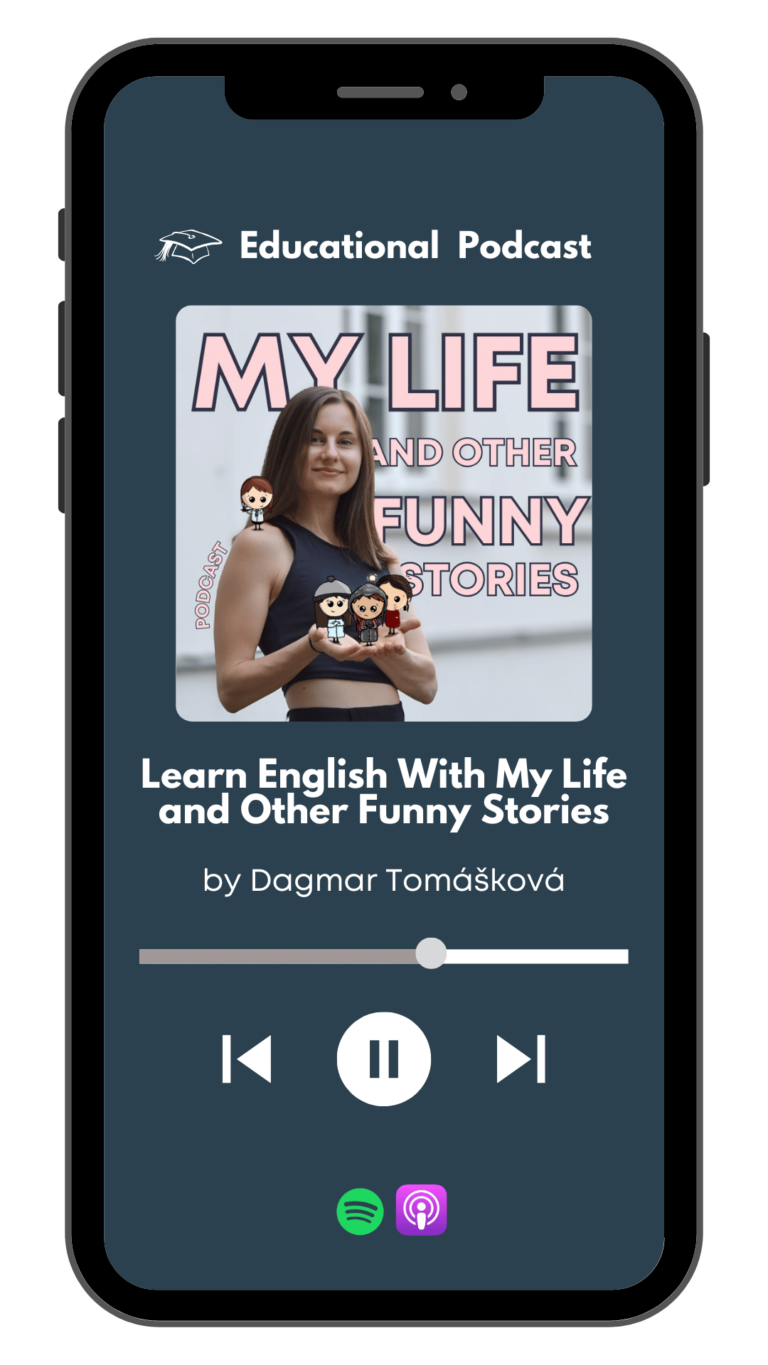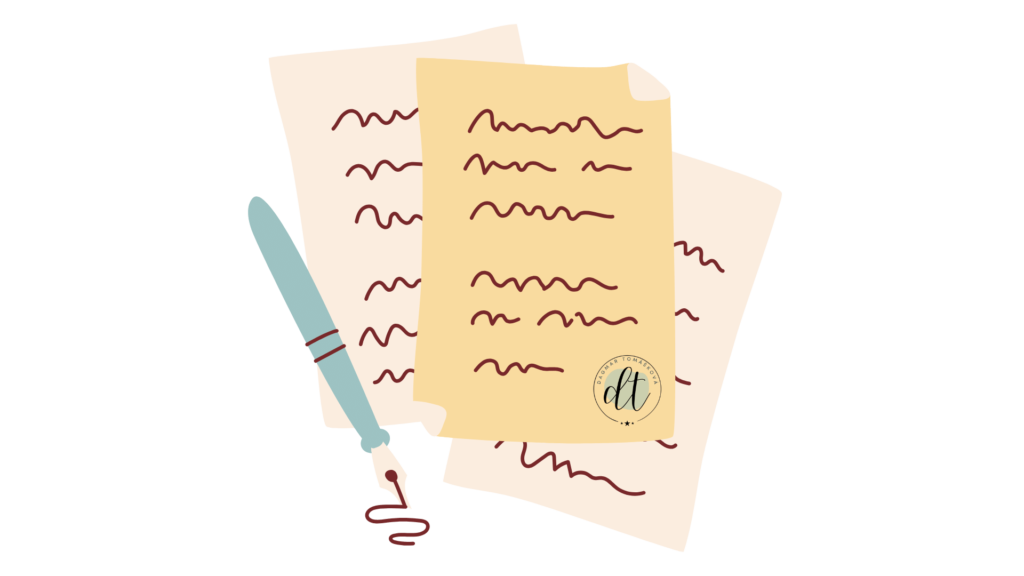
Ep.81: Why Do We Forget English Grammar and Words and How To Remember More

Have you ever learned a new word in English, felt super proud of yourself… and then poof! — the next day, it’s gone? Vanished. Disappeared from your brain like it was never there?
Yeah. Me too.
But don’t worry! You’re not stupid. You’re not bad at learning. In fact, your brain is supposed to forget things. Today, we’re talking about how memory works, why we forget, and what we can do to remember more—especially when learning a language!
LISTEN TO THE EPISODE HERE:
Soon!


WRITTEN TRANSCRIPTION OF THE PODCAST
Hello and welcome to my podcast My Life and Other Funny Stories. My name is Dagmar Tomášková, I am an English tutor and coach and I created this podcast for English students who want to improve their oral comprehension. As always you can find the transcription of this episode and the vocabulary list in the notes of the podcast.
Have you ever learned a new word in English, felt super proud of yourself… and then poof! — the next day, it’s gone? Vanished. Disappeared from your brain like it was never there?
Yeah. Me too.
But don’t worry! You’re not stupid. You’re not bad at learning. In fact, your brain is supposed to forget things. Today, we’re talking about how memory works, why we forget, and what we can do to remember more—especially when learning a language!
The reason why I want to talk about it is because I know how many people are hard on themselves when they forget things and they think that they might be the ones that are stupid. But what if I told you that everyone is like that? Everyone forgets?
Anyway, memory was also a big part of my neurolanguage coaching certification and personally I find it fascinating how our brains work so let’s look at it.
Why Do We Forget So Fast?
Let me hit you with a fun fact – imagine you learn something new – and there is a lot of it. Something that you never knew before and it is a complete novelty.
- After one hour, you have already forgotten 50% of the new information.
- After one week, you have already forgotten 90%.
- And if you never really paid attention to it? 0% stays in our brain.
Imagine learning something while you are distracted by notifications, spending your precious time on it and 10 days later it’s like you haven’t done anything at all.
That’s right. If you hear a new word but don’t focus on it, your brain just goes: „Meh, we don’t need this.“ And it throws it out like old socks.
But why?
Well, our brain is like a super-efficient cleaner. It doesn’t want to waste space on things we don’t use. Imagine if you remembered every single conversation, advertisement, or random WiFi password you’ve ever seen. Your brain would be a mess! So instead, it deletes what it thinks is unimportant.
That’s why just hearing a new word once isn’t enough. Your brain says to itself – well, we learned it but…I didn’t hear about it again, so I guess it wasn’t important. DELEEETEE!
If you don’t use it, you lose it.
So, what about it?
First of all, just looking at a video, reading a book or passively listening to something won’t do you any favors. The first step is always taking notes.
But let’s be real. Writing notes can be boring, annoying and slow. Why should you do it when then watching or reading takes twice as long? You don’t have that much time. You’re busy!
Yeah. I get it.
But here’s the trick: Taking notes is not about writing everything down. It’s about helping your brain pay attention. When you write something, your brain says: „Oh! This must be important!“
And guess what? If you see that word again in your notes later, your brain says: „Oh wow, this again? Okay, I guess I should remember it.“
Taking notes is like leaving breadcrumbs for your memory to follow later.
But can we make our memory stronger? What do you think?
Good news! You can train your memory—just like a muscle. Our brain is neuroplastic. What does it mean? It means that it can adapt and change. Our brain can be trained to remember more and for a longer period of time, if we work on it. Of course, with time, neuroplasticity doesn’t have to be as functional as it is in childhood but it doesn’t mean that our memory has to be worse and worse as we get older.
Here are some tricks to improve your memory:
1.Use Spaced Repetition
Don’t just look at a new word once and hope it sticks. Review it after one day, then after three days, then after a week. Your brain needs reminders! If you retrieve the information at least two or three times, there is a significantly higher chance that you will remember it much longer or even forever.
2.Make It Meaningful
You’ll remember words better if they’re connected to something you care about. Instead of just memorizing “apple = jablko,” imagine yourself eating an apple. Or even better—use the word in a real-life situation. For example, as you are cutting it, you can talk to yourself – right now, I am cutting an apple. Say it out loud, say it three times. It will be easier for you to remember.
3.Speak It Out Loud
As I have just mentioned, talk to yourself. No, you’re not crazy. When you say a word, you’re using more parts of your brain than when you just read it. It helps you lock it in!
4.Create Funny Connections
The weirder, the better! When I was learning irregular verbs, I always grouped them based on the way they make the past tense. I always repeated:
swim – swam – swum
drink – drank – drunk
sing – sang – sung
ring – rang – rung
or
think – thought – though
bring – brought – brought
buy – bought – bought
fight – fought – fought
teach – tought – tought
It makes it playful and easier to remember.
5. Teach Someone Else
If you can explain a new word or phrase to a friend (or even your dog), you’re much more likely to remember it yourself.
So, the next time you forget an English word, sentence, phrase or grammar, don’t panic! Your brain is just doing its job. But now, you have the tools to help it remember better.
Start small. Try one of these memory tricks today, and see what works for you!
Thank you for listening! If you liked this episode, please leave a five-star rating and share it with your friends. Don’t forget, you can find the transcript and vocabulary list in the podcast notes. See you next time.

VOCABULARY LIST
vanish – zmizet
disappear – zmizet
it is supposed to – má to být
novelty – novinka
to be distracted – být rozptýlený
efficient – efektivní
to waste space – plýtvat místem
to delete – smazat
it won’t do you any favor – nijak ti to neprospěje
let’s be real – buďme upřímní
leave breadcrumbs – zanechat stopy
muscle – sval
spaced repetition – rozložené opakování
meaningful – smysluplný
out loud – nahlas
lock it in – upevnit si to
the weirder, the better – čím divnější, tím lepší